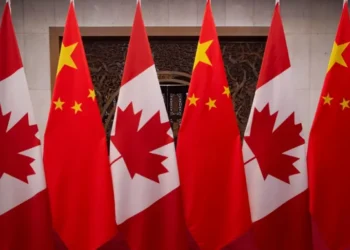Taiwan falling to China would trigger “catastrophic” consequences for peace in Asia, and if threatened, Taiwan will do whatever it takes to defend itself, President Tsai Ing-wen wrote in an article for the US magazine, Foreign Affairs published on Tuesday, October 5, 2021.
Taiwan, which is claimed by China as its sovereign territory, has faced a massive stepping up of pressure from Beijing since Friday, with 148 Chinese air force aircraft flying into Taiwan’s air defense zone over a four-day period.
China has blamed the United States, Taiwan’s most important international backer and arms supplier, for the rise in tensions, while Taiwan has called China the “chief culprit” in the current situation.
Need to work together
Writing in Foreign Affairs, Tsai said as countries increasingly recognize the threat China’s Communist Party poses, they should understand the value of working with the island.
“And they should remember that if Taiwan were to fall, the consequences would be catastrophic for regional peace and the democratic alliance system. It would signal that in today’s global contest of values, authoritarianism has the upper hand over democracy”.
President Tsai Ing-wen
China believes Tsai is a separatist for refusing to accept that Taiwan is part of “one China”, and has cut off dialogue. But Tsai insists Taiwan is an independent country called the Republic of China, its formal name.
Tsai wrote that Taiwan does not seek military confrontation, and wants peaceful, stable, predictable and mutually beneficial coexistence with its neighbors.
“But if its democracy and way of life are threatened, Taiwan will do whatever it takes to defend itself”, Tsai said. She added that Taiwanese people would “rise up” should Taiwan’s existence be threatened having made clear that democracy is non-negotiable.
Call for negotiations
Nevertheless, she reiterated a call for talks with China, as long as it happens in a spirit of equality and without political preconditions, however, Beijing has repeatedly rejected.
“Amid almost daily intrusions by the People’s Liberation Army, our position on cross-strait relations remain constant: Taiwan will not bend to pressure, but nor will it turn adventurist, even when it accumulates support from the international community”.
President Tsai Ing-wen
Tsai further highlighted in her statement that Taiwan is both vibrantly democratic and Western, but influenced by Chinese civilization and shaped by Asian traditions.
“Taiwan, by virtue of both its very existence and its continued prosperity, represents at once an affront to the narrative and an impediment to the regional ambitions of the Chinese Communist Party”.
President Tsai Ing-wen
On October 4, 2021, Taiwan said it was “on alert” over China’s “over the top” military maneuvers, after Beijing flew a record of 56 fighter planes towards the self-governing island in a third day of sustained military intimidation.
The first sortie on Monday of 52 planes included 34 J-16 fighter jets and 12 H-6 bombers, among other aircraft, according to Taiwan’s Ministry of National Defence. Later, four more Chinese J-16s flew towards the southwestern part of Taiwan’s air defence identification zone, a buffer outside the country’s airspace.
High risk of conflicts
According to the Ministry of National Defence, Taiwanese air force scrambled its fighter planes and monitored the movement of the Chinese warplanes on its air defence system.
Taiwan has reported 148 Chinese airforce planes entering the southern and southwestern part of its air defence zone since China celebrated its National Day on October 1. On Monday, foreign minister Joseph Wu expressed worry about the risk of conflict.
“We are very concerned that China is going to launch a war against Taiwan at some point, even though the threat may not be imminent at this point”.
Joseph Wu
China claims democratically-ruled Taiwan as its own territory and has not ruled out the use of force to bring the island under its control. Reports say China has increasingly sought to isolate Tsai’s administration since she was first elected in 2016.
The defeated nationalist forces fled to Taiwan and set up a government there in 1949 after losing the civil war to the communists who set up the People’s Republic of China. The Republic of China, the official name for Taiwan, continued to hold China’s seat at the United Nations until November 1971 when the PRC achieved UN recognition. Beijing has since opposed Taiwan’s involvement in the UN and international organizations and alliances.
READ ALSO: CAPEX to consume only 9.3% of total expenditure in 2022























